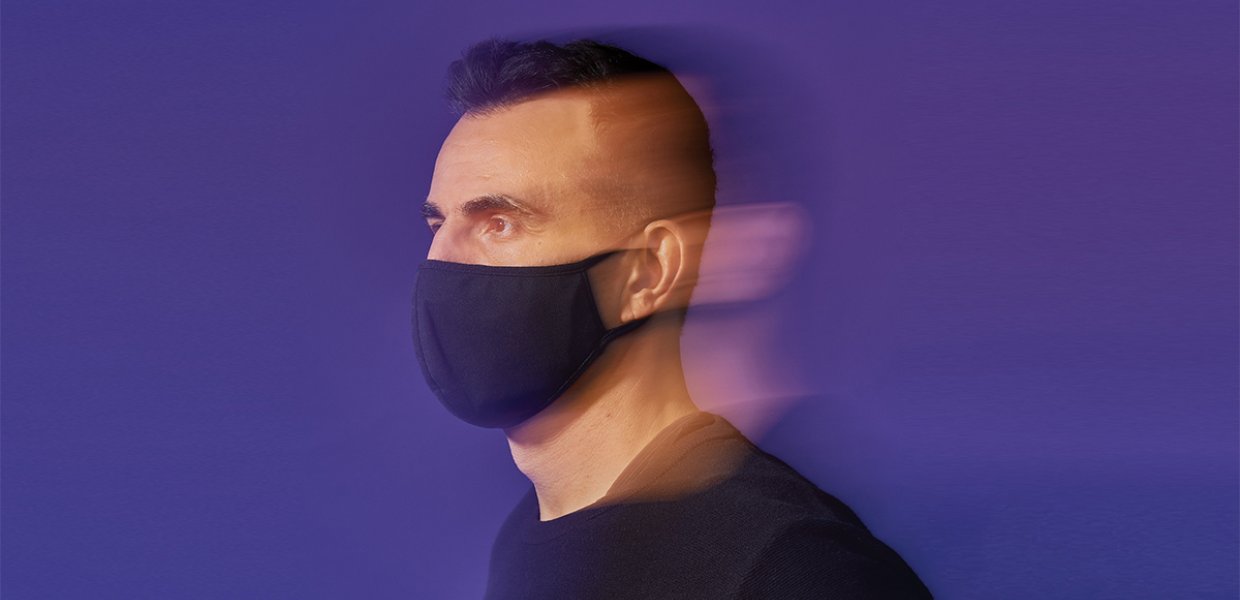This past summer cars curled their way through the Dodger Stadium parking lot, steered not by excited fans ready to cheer on their team, but instead by anxious drivers submitting to COVID-19 tests. At the entrance, a giant Healthvana digital sign, framed in calming baby blue, greeted them.
Ramin Bastani started Healthvana in 2014 to better deliver medical test results via a HIPAA-secure, mobile-friendly portal. “Our mission is to help eliminate COVID-19 and HIV by using technology that allows for clear communication,” he said. “Our platform design is key to achieving this.”
Instead of pages of lab results filled with lines of data, Healthvana offers users a clean, vertically oriented graphic displaying their name, ID, date and easy-to-understand results on their cell phones. It’s simple to screen grab and share, which is imperative, according to Bastani, to help patients. “This is the killer feature,” he said. “Because 80% of healthcare decisions are made based on your labs.”
Bastani, who graduated in 2001 with a bachelor’s in communication, considers himself an entrepreneur at heart. As a child, he sold candy, organized car washes, traded baseball cards and had an early personal creed: “If I saw a problem that needed solving, I worked to address it, hoping other people would benefit as well.”
In 1995, he was recruited by the Trojan basketball team, but in his first season suffered a knee injury that essentially ended his career. He turned this misfortune into action by writing “Jump On,” a booklet designed to increase athleticism in a safer way — and then went on to advertise it in magazines. “It sold all over the world,” he said. “It was challenging to balance that and school.”
In addition to his communication courses, Bastani also joined the entrepreneurial program at the USC Marshall School of Business. In the late ’90s, as innovation in technology was taking off, Bastani recalls sitting in his Los Angeles apartment on his 33.6K modem trying to figure out “how this internet thing will change people’s lives,” he said.
After graduating, he launched SportsFrog! to enable sports fans to sell their predictions and analysis, but then a few years later turned his focus to help support his ailing father. It was during those years of caring for a parent that Bastani realized his calling. Healthvana was eventually born out of his deep frustration in not getting his father’s lab results back in a comprehensive and actionable manner.
“The core piece of the company, the question we answer every day, is what every human being thinks about when they’re waiting for anxiety-provoking labs,” he said. “And that’s, ‘Am I going to be okay?’ We answer that better than anyone else.”
Healthvana started building their digital platform by focusing on those at risk of, and living with, HIV. Their strategy was to create a solution for delivering the most sensitive data under HIPAA, that could improve patient outcomes. “Most of healthcare looks like Windows 95,” he said. “We look and feel more like Instagram.”
Based on Healthvana’s successful reputation of being the largest software platform for HIV results, the City of Los Angeles reached out to the company for help when the pandemic began surging in mid-April. Within a week, Healthvana helped the city improve the accessibility, accuracy and speed of results. “We answered every call, every email,” he said. “We’re showing them a glimpse of what healthcare can look like.”
The company has since partnered with other cities and states. To date, they have delivered more than 5 million results to patients across the United States. With the rollout of the COVID-19 vaccines in December, they expanded to delivering digital vaccination records, along with second-dose reminders.
“There’s three words that really guide what we’re doing today,” Bastani said. “Speed is life. We have never been in a situation, as a company, as a country or as a world, where every single second matters and the clarity of communication matters. And being able to do that in an empathetic way matters.”
